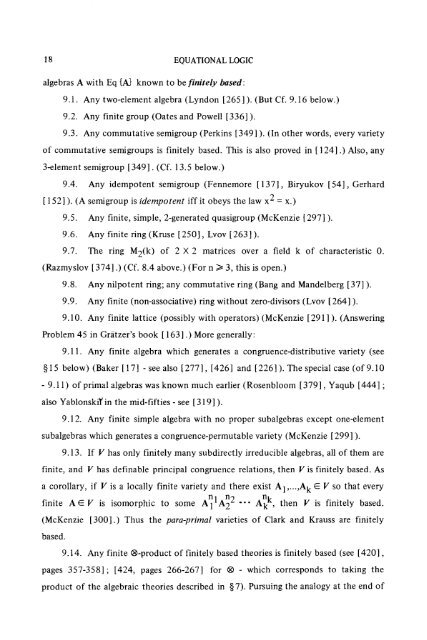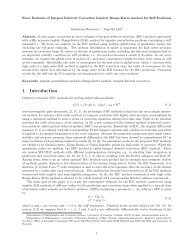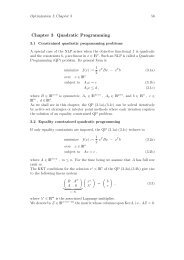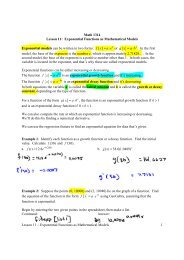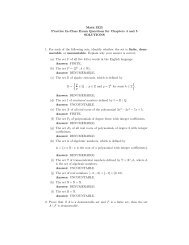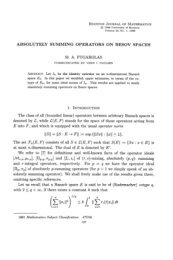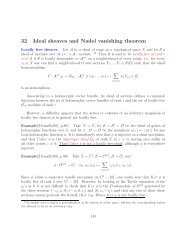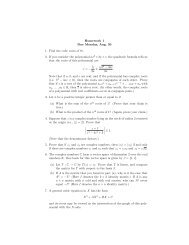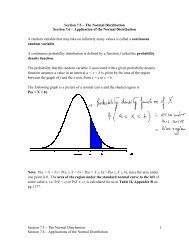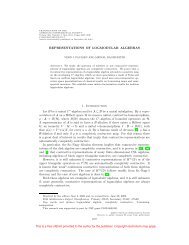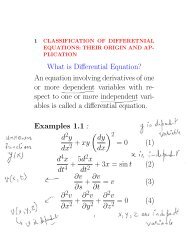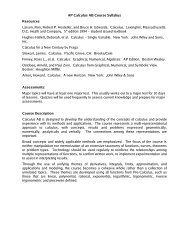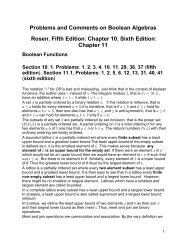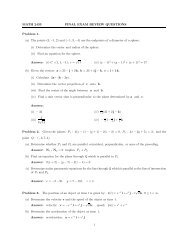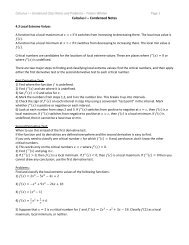Survey 1979: Equational Logic - Department of Mathematics ...
Survey 1979: Equational Logic - Department of Mathematics ...
Survey 1979: Equational Logic - Department of Mathematics ...
You also want an ePaper? Increase the reach of your titles
YUMPU automatically turns print PDFs into web optimized ePapers that Google loves.
18 EQUATIONAL LOGIC<br />
algebras A with Eq (A} known to befinitely based:<br />
9.1. Any two-element algebra (Lyndon [265] ). (But Cf. 9.16 below.)<br />
9.2. Any finite group (Oates and Powell [336] ).<br />
9.3. Any commutative semigroup (Perkins [349] ). (In other words, every variety<br />
<strong>of</strong> commutative semigroups is finitely based. This is also proved in [ 124] .) Also, any<br />
3-element semigroup [349]. (Cf. 13.5 below.)<br />
9.4. Any idempotent semigroup (Fennemore [137], Biryukov [54], Gerhard<br />
[ 152] ). (A semigroup is idempotent iff it obeys the law x 2 = x.)<br />
9.5. Any finite, simple, 2-generated quasigroup (McKenzie [297] ).<br />
9.6. Any finite ring (Kruse [250], Lvov [263]).<br />
9.7. The ring M2(k ) <strong>of</strong> 2 X 2 matrices over a field k <strong>of</strong> characteristic 0.<br />
(Razmyslov [374] .) (Cf. 8.4 above.) (For n > 3, this is open.)<br />
9.8. Any nilpotent ring; any commutative ring (Bang and Mandelberg [37] ).<br />
9.9. Any finite (non-associative) ring without zero-divisors (Lvov [264]).<br />
9.10. Any finite lattice (possibly with operators)(McKenzie [291]). (Answering<br />
Problem 45 in Gr/itzer's book [ 163] .) More generally:<br />
9.11. Any finite algebra which generates a congruence-distributive variety (see<br />
{} 15 below) (Baker [ 17] - see also [277], [426] and [226] ). The special case (<strong>of</strong> 9.10<br />
- 9.11) <strong>of</strong> primal algebras was known much earlier (Rosenbloom [379], Yaqub [444];<br />
also Yablonskit' in the mid-fifties - see [ 319] ).<br />
9.12. Any finite simple algebra with no proper subalgebras except one-element<br />
subalgebras which generates a congruence-permutable variety (McKenzie [299] ).<br />
9.13. If V has only finitely many subdirectly irreducible algebras, all <strong>of</strong> them are<br />
finite, and V has definable principal congruence relations, then V is finitely based. As<br />
a corollary, if V is a locally finite variety and there exist A1,...,A k 6 V so that every<br />
n 1 n2 nk<br />
finite A6 V is isomorphic to some A 1 A 2 'ø' Ak, then V is finitely based.<br />
(McKenzie [300].) Thus the para-primal varieties <strong>of</strong> Clark and Krauss are finitely<br />
based.<br />
9.14. Any finite ©-product <strong>of</strong> finitely based theories is finitely based (see [420],<br />
pages 357-358]; [424, pages 266-267] for © - which corresponds to taking the<br />
product <strong>of</strong> the algebraic theories described in {}7). Pursuing the analogy at the end <strong>of</strong>


